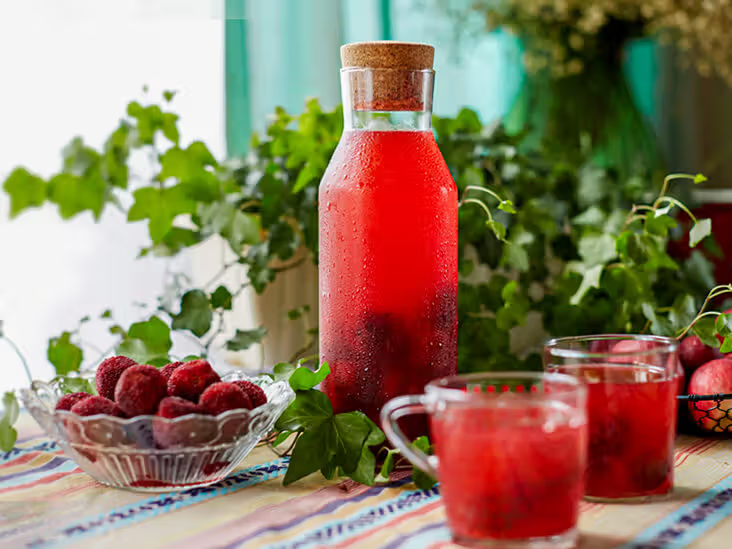In recent years, more women are turning to natural solutions to manage their health—particularly when it comes to intimate and urinary wellness. Among all the herbal and fruit-based remedies available, one stands out: cranberry.
So, why cranberry for feminine health? Is it just another wellness trend, or is there actual science behind it? In this comprehensive article, we’ll explore the real benefits of cranberry for women’s health, explain how it works, and show you the best ways to incorporate it into your routine.
🍒 A Brief History of Cranberry in Women’s Wellness
Cranberries aren’t a new discovery. They’ve been used for centuries by Native American tribes for treating wounds, infections, and promoting healing. Over time, they gained recognition in modern medicine—particularly for supporting urinary health, a major concern for women of all ages.
Today, cranberry is available in many forms: juices, supplements, powders, feminine hygiene products, and even teas. And its role in feminine health has never been more relevant.
💡 Why Cranberry Is a Natural Solution for Feminine Health
1. Helps Prevent Recurring Urinary Tract Infections (UTIs)

UTIs are among the most common health issues affecting women, with over 50% of women experiencing at least one UTI in their lifetime. Due to shorter urethras, women are more prone to bacterial infections entering the bladder.
Cranberries are rich in proanthocyanidins (PACs)—bioactive plant compounds that:
- Prevent E. coli from adhering to bladder walls
- Reduce bacterial colonization
- Help flush out pathogens naturally
✅ Regular use of cranberry extract has been shown to reduce UTI recurrence by up to 40–50% in women who are prone to infections.
2. Supports Vaginal pH and Flora Balance
The vagina has a delicate ecosystem of good bacteria (like Lactobacillus) and natural acidity that helps prevent infection. When this balance is disrupted—by antibiotics, poor hygiene, hormonal shifts, or tight clothing—women can experience yeast infections, BV (bacterial vaginosis), or discomfort.
Cranberries help:
- Inhibit the growth of harmful bacteria
- Promote a healthy, acidic environment
- Act as a mild antimicrobial agent
Combined with probiotics, cranberry can help naturally balance vaginal flora and support a healthy pH level.
3. Reduces Inflammation and Pelvic Discomfort
Chronic UTIs, vaginal infections, and hormonal changes can cause persistent discomfort or pelvic inflammation. Cranberries contain:
- Vitamin C, which boosts immunity
- Flavonoids, which reduce inflammation
- Antioxidants, which repair tissue damage
This makes cranberry especially helpful for:
- Women recovering from infections
- Those going through menopause
- Individuals with interstitial cystitis (IC) or chronic bladder irritation
4. Safe for Long-Term Use Without Antibiotic Resistance
Unlike antibiotics, cranberry doesn’t kill bacteria—it prevents them from sticking. This means:
- No risk of antibiotic resistance
- No disruption of your gut or vaginal microbiome
- Can be taken long-term without harmful effects
This is especially important for women who get frequent UTIs and want a natural, preventative solution.
5. Gentle Feminine Hygiene Enhancement
Some natural feminine hygiene products include cranberry extract because of its:
- Light antimicrobial properties
- Natural scent
- Skin-friendly pH-balancing effects
Using cranberry-based feminine washes, wipes, or sprays can help maintain external freshness without disrupting the body’s internal balance.
👩⚕️ Who Can Benefit Most from Cranberry for Feminine Health?

Cranberry isn’t just for women with UTI issues. It’s beneficial for:
| Group | Why It Helps |
| Young women | Prevent UTIs from tight clothing or hygiene habits |
| Sexually active women | Reduces post-intercourse UTI risk |
| Pregnant women | Supports immune system and bladder health (with doctor’s approval) |
| Menopausal women | Helps with vaginal dryness, irritation, and bladder control |
| Athletes | Keeps urinary system clean during intense physical activity |
🧴 Best Ways to Use Cranberry for Feminine Health
Here’s how to include cranberry in your daily or weekly routine:
1. Cranberry Capsules or Softgels
- Provide a high dose of PACs in concentrated form
- Sugar-free and easy to absorb
- Ideal for women who experience frequent UTIs
🔍 Look for capsules with 36 mg PACs, the clinically studied dose for UTI prevention.
2. Pure Cranberry Juice (Unsweetened)
- High in antioxidants
- Great for hydration
- Can be mixed with water or smoothies
⚠️ Avoid juice blends with added sugar, which can feed bad bacteria.
3. Cranberry Powder
- Mix in water, yogurt, or protein shakes
- Great for travel or daily maintenance
- Shelf-stable and potent
4. Cranberry-Enriched Feminine Products
- Wipes, sprays, or washes that help with external cleanliness
- Ideal after workouts, during periods, or in humid climates
🧬 Scientific Support: Does Cranberry Really Work?
Yes! Multiple peer-reviewed studies support cranberry’s benefits:
- American Journal of Clinical Nutrition (2016): Found that cranberry juice reduced UTI risk by 27% in women with a history of UTIs.
- Journal of Urology: Confirmed cranberry’s ability to prevent bacterial adhesion in the bladder.
- Cochrane Review (2023): Suggested moderate evidence for cranberry reducing UTI recurrence in women.
Though not a cure, cranberry is an effective preventive tool, especially when combined with lifestyle and hygiene practices.
🧠 Tips for Enhancing Cranberry’s Effects
- Drink plenty of water to flush your system
- Avoid wearing tight underwear or synthetic fabrics
- Practice urinate-after-intercourse hygiene
- Use pH-balanced soap for intimate areas
- Combine with probiotics or vitamin C for added defense
Frequently Asked Questions
Q1: Can cranberry replace antibiotics for UTIs?
No, but it can significantly help prevent them. Always consult a doctor for active infections.
Q2: How long does cranberry take to work?
Some women notice changes in 7–14 days, especially with regular use.
Q3: Are there side effects of taking too much cranberry?
Rarely, but excessive juice can cause stomach upset or increase oxalates (risk for kidney stones).
Q4: Is cranberry helpful for yeast infections?
Not directly, but it supports vaginal health, which may reduce risk when used with probiotics.
Q5: Can I take cranberry supplements daily?
Yes. Most are designed for daily, long-term use.
Q6: What’s better—juice or capsules?
Capsules offer concentrated PACs without sugar, making them more effective for prevention.
Q7: Is cranberry good during menopause?
Yes. It helps with urinary and vaginal changes common in menopausal women.
Q8: Can I give cranberry supplements to teenage girls?
Yes, in age-appropriate doses. Always read the label or consult a pediatrician.
📝 Final Thoughts: Why Cranberry for Feminine Health?
Cranberry is one of the safest, most effective, and natural options for supporting urinary and vaginal health in women. Whether you’re aiming to prevent infections, reduce irritation, or simply feel more confident in your daily life, cranberry delivers real benefits backed by both history and science. By making cranberry part of your routine—whether through supplements, juice, or hygiene products—you’re investing in your feminine well-being the natural way.

Leave a Reply